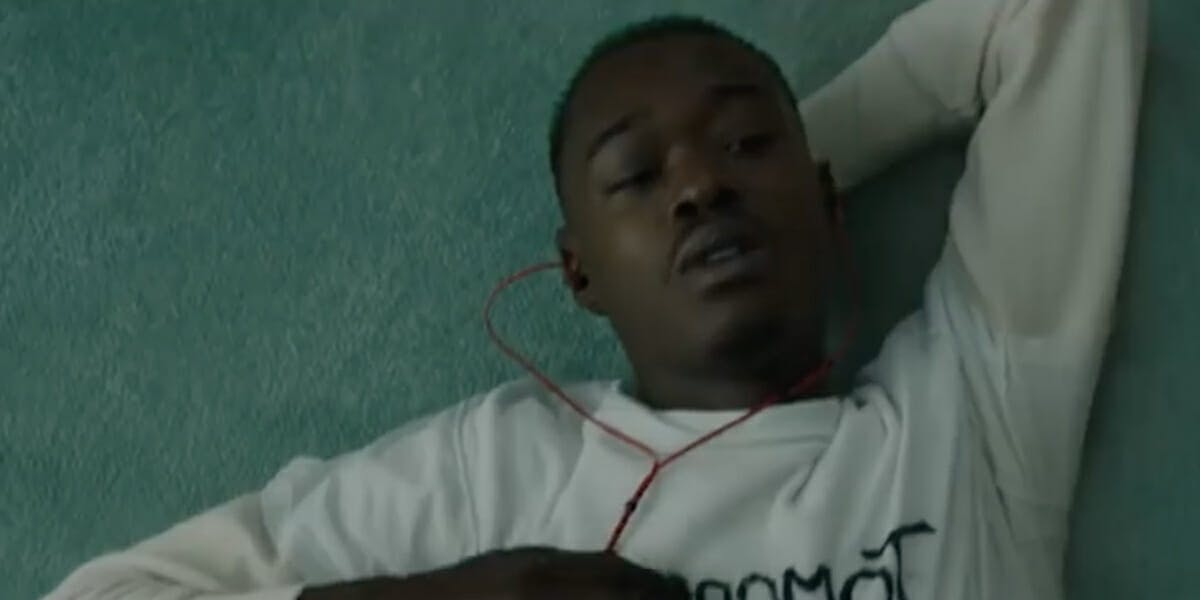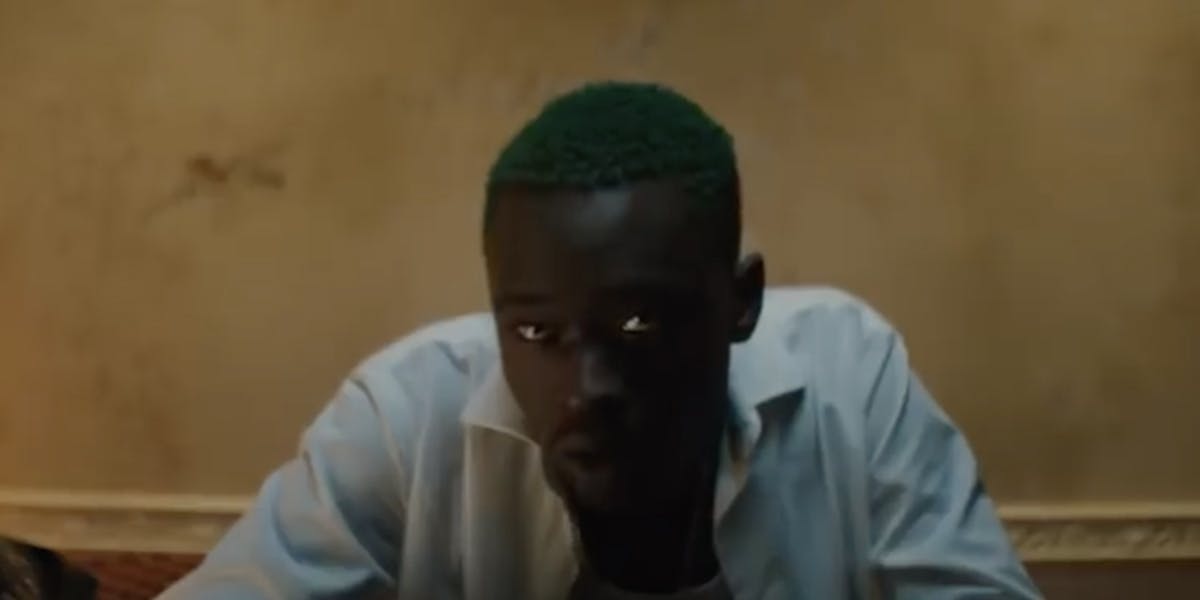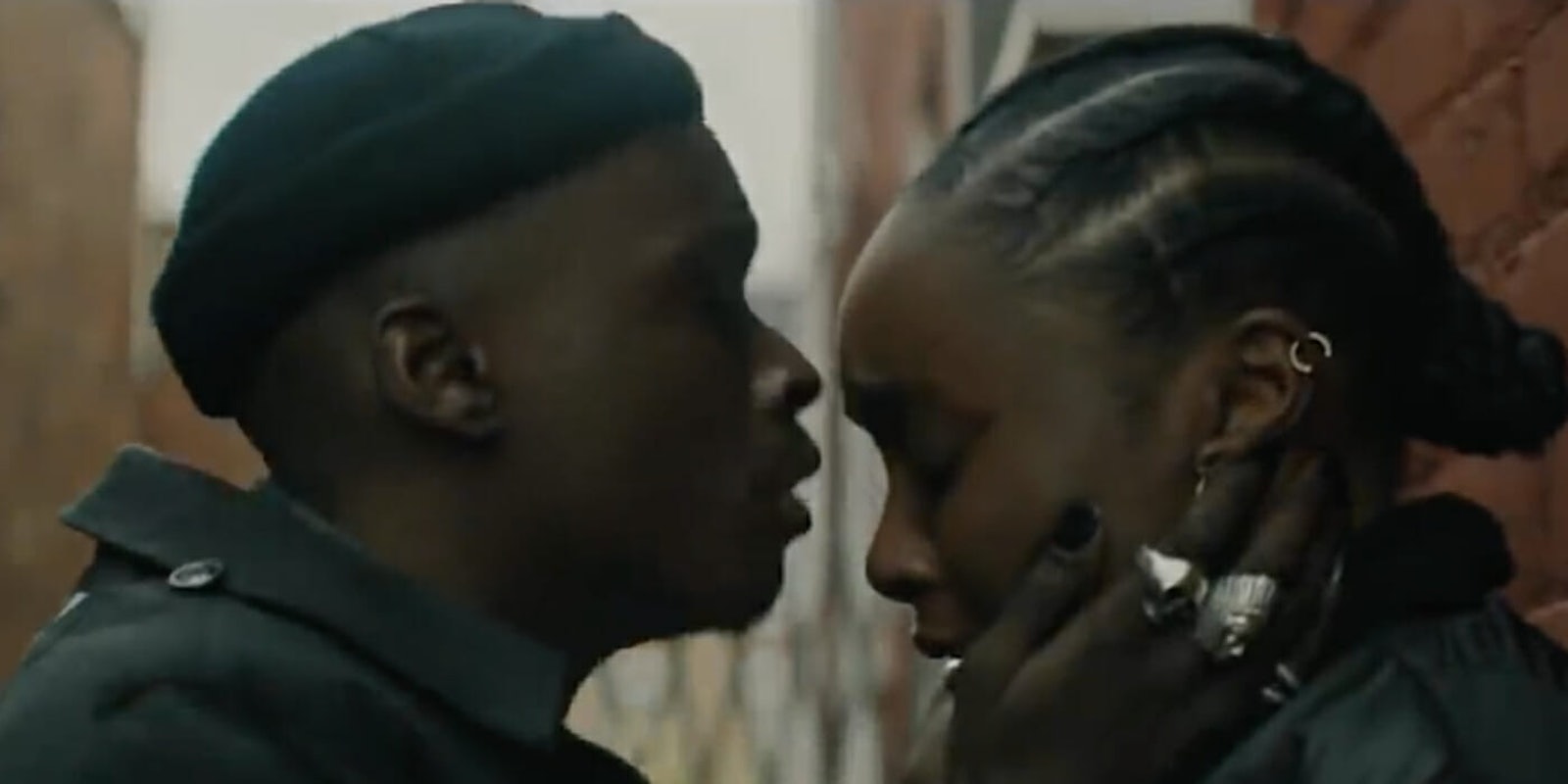HBO’s modal and challenging Native Son, directed by Rashid Johnson and adapted by Pulitzer Prize winner Suzan-Lori Parks from Richard Wright’s esteemed classic novel by the same name, sees the all-too-common and tragic plight of a young Black man trying to navigate the Chicago’s contemporary four-dimensional maze. The acting is powerful and the film’s fatalist heart cuts to the bone.

DIRECTOR: Rashid Johnson
STREAMING: HBO
A modern update on a classic novel from 1940, the film explores American ghettos via spellbinding performances with heartbreaking results.
Sporting green-tinted hair, punk sensibilities, and a pistol, the angsty Bigger “Big” Thomas (rising star Ashton Sanders) is far from aimless. He initially possesses a touch of virtue—he refuses his friend’s robbery scheme, to the latter’s name-calling dismay. He’s out-kicked his coverage with his faithful girlfriend Bessie (KiKi Layne) who believes in him, as does his family. His mother (Sanaa Lathan) knows better than everyone about the hazards her son must traverse.
Big acquires a cushy chauffeur job for affluent businessman Will Dalton and his family, which includes his blind wife. There’s an aggressively progressive daughter, Mary, and of course, he falls into her domination of his time and mental space with her feminine wiles and continuous questioning. However, his direct involvement in the accidental death of Mary (Margaret Qualley) launches a jungle of horrors from which Big must escape.
Both measured and largely understated until the last third of the film, Sanders’ (Moonlight, Captive State) and Layne’s (If Beale Street Could Talk) ongoing coming-out parties continue here—and they have bright Hollywood futures.

The book was criticized as dangerous by author James Baldwin, who rightfully described Black men as much more complex than Wright’s written, stereotypical portrayal. The book was released in 1940 and, as the New York Times notes, intended for a white audience. It was meant to show the poor conditions of American ghettos, but in doing so characterized its leads as “motivated only by fear, hate and a slew of animal impulses,” as the Times wrote. Interestingly enough, there are numerous scripting indications in the movie that show Parks and Johnson understood Baldwin’s analysis. (They cut the novel’s grisly rape scene, as well as a masturbation scene that likely didn’t have a place within the updated conception.)
However, this adaptation, unfortunately, continues to push toward an abrogating boundary, even after the inciting death of Mary. It isn’t until the end of the film that Sanders is able to bloom within the character, largely constrained with Parks’ script and Johnson’s emphasis on mood and aesthetic.
Not pulled through, in full, though implicated and noted through Baldwin’s arguments against Wright, is a deeper probing of Bigger’s centering, his sense of self. Is a person a culmination of experiences, or do they—especially a Black person in America—have any sensation of true agency? The connection between Bigger’s ostensibly doomed existence and the reasons for doom is left off-screen.

The ending is predictably staged as if there was no other path for Bigger beyond tragedy. Yet Black people are avoiding the traps laid in front of them on a daily basis—even through white supremacy’s choking smoke. In this, the character’s lack of stemming, due in part to his lack of a steadying figure, deserves more exploration in the film. But this is perhaps to show that many Black men and women aren’t afforded the opportunity of reflection. In that light, this adaptation is just as heartwrenching as the original.
Still not sure what to watch on HBO? Here are the best movies on HBO, the best HBO documentaries, and what’s new on HBO Go this month.


